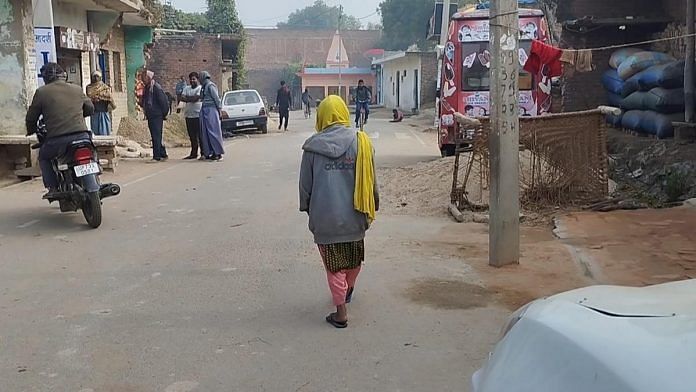Kaushambi: The new mother craves rotis, but has to settle for rice because it’s expensive to grind the family’s wheat rations into flour. She would have preferred an abortion to giving birth, but there too, the decision wasn’t up to her. She is 13 years old, a rape survivor, and her family is terrified of how society will treat her if they have to keep the baby.
A child herself, the girl hasn’t yet fully healed from giving birth prematurely on 13 December. The baby is still in the hospital. Wearing a thin grey hoodie that was donated by a local well-wisher, she shivers slightly as she huddles with her parents and siblings in front of a bonfire in her village in Uttar Pradesh’s Kaushambi district.
It’s the only source of heat that the family of 13 has in their mud hut. There’s no electricity and they can’t afford warm clothes and shoes to protect them from the bitter cold.
Her ordeal started at some point in the summer last year, the girl says, when a relatively well-off “uncle”, unrelated by blood, set his sights on her. He was 45-50 years old, belonged to the same Pasi (Dalit) community as her family, was the father of four daughters and two sons, and lived a few houses down.
“’He used to invite me to his house on the pretext of giving me five rupees and toffee. Then he used to ask me to take off my clothes,” she told ThePrint, speaking haltingly, her eyes filling with tears.
“When I refused, he used to forcefully take off my clothes and do wrong things with me. After this, he used to tell me that if I told anyone, he would kill my parents.”
Out of fear, the sixth-standard student stayed silent about the repeated ‘rapes’. But in the first week of last August, she was wracked by a severe stomach pain. Her family took her to a doctor who performed an ultrasound and discovered she was pregnant. That’s when she told her parents that their trusted neighbour Shivmurat Pasi had been raping her.
Her father, a landless labourer, claimed he immediately went to Charwa police station to lodge a complaint but was “chased away” at first. Thereafter, he added, a local journalist apprised Kaushambi Superintendent of Police (SP) Hemraj Meena about the matter, and on his direction, a First Information Report (FIR) was finally registered on 8 August. A medico-legal examination of the girl was also conducted.
According to the case diary, which ThePrint has seen, the survivor was found to be 18 weeks and two days pregnant at the time.
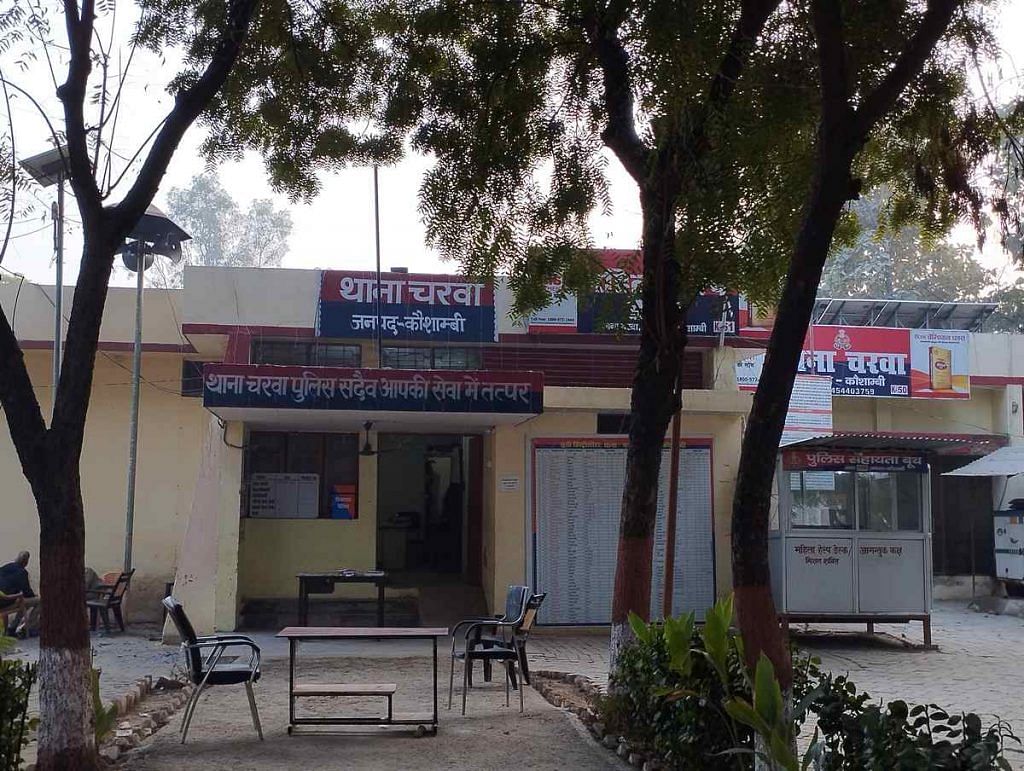
When ThePrint asked Charwa police station inspector Alok Kumar about why the FIR was not filed right away, he called the allegation “baseless”.
On 10 August, the police arrested Shivmurat Pasi, booking him under various Indian Penal Code (IPC) sections, including 376(3) (rape on a woman under 16 years of age) and 511 (committing offense punishable with imprisonment for life or other imprisonment), as well as under provisions of the Protection of Children against Sexual Offences (POCSO) Act.
The wheels of justice had started to turn, as far as the family was concerned, but they were not aware that the clock was also ticking and that getting an abortion would soon prove to be an impossible exercise.
Also read: Ten years since Nirbhaya — rape laws changed, then came Disha, Shahdara, Bulandshahr
A losing fight for abortion
In 2021, amendments to the Medical Termination of Pregnancy (MTP) Act increased the abortion limit in India from 20 weeks to 24 weeks for certain categories of women, including rape victims and minors.
Further, the Union government’s medico-legal guidelines for sexual violence survivors stipulate that if a woman reports a pregnancy arising from assault, “she is to be given the option of undergoing an abortion, and protocols for MTP are to be followed”.
However, the victim’s father said that they were not informed about the 24-week limit on abortions. While they visited a private hospital to terminate the pregnancy, they did not have the necessary funds to pay for it and so waited longer.
On 28 September, as the girl’s health deteriorated, her father admitted her to the government-run Kaushambi district hospital in Manjhanpur, about 35 km from their village.
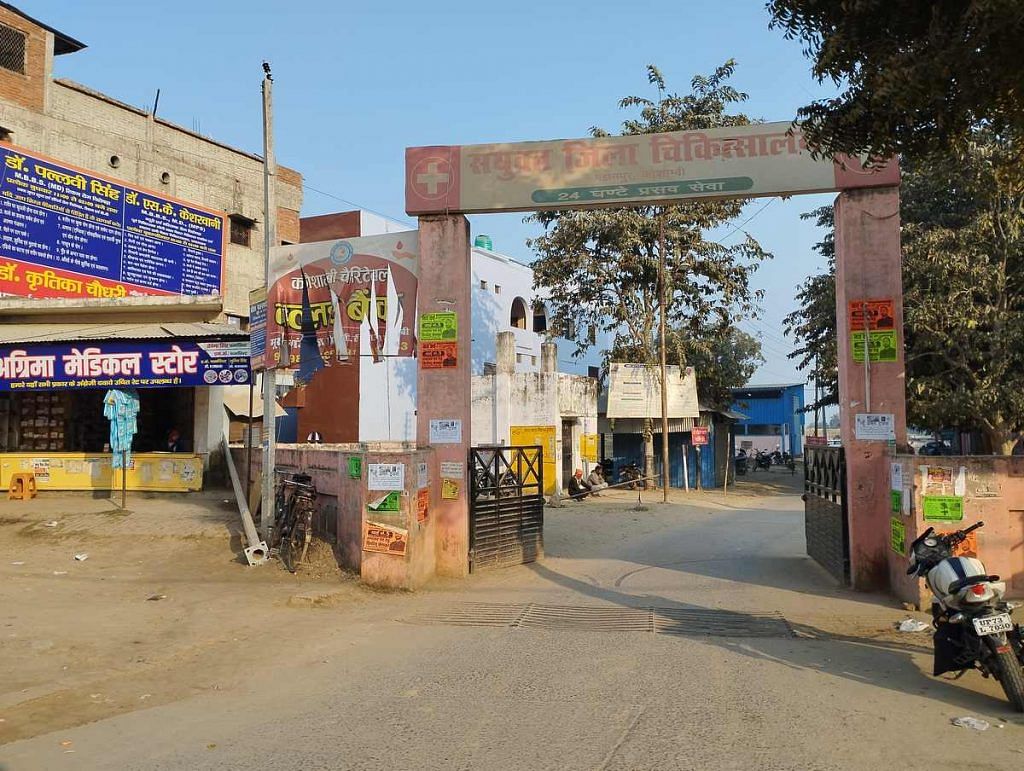
When he asked the doctors to perform the abortion there, they informed him that the pregnancy had crossed 24 weeks and he would need to get a court order.
He then approached the district court, where the judge on 15 October ordered Kaushambi’s chief medical officer (CMO) to constitute a board of doctors and to take the appropriate action as required by law.
By the time the CMO responded on 2 November, the 13-year-old was already well past 30 weeks of her pregnancy. The medical committee had concluded that the district hospital was not equipped to perform the abortion since the pregnancy was at a late stage and the procedure could threaten her life. They, however, recommended that the victim should be referred to the Swaroop Rani Hospital in Prayagraj, say court documents that ThePrint has seen.
The girl’s father said that Swaroop Rani Hospital was supposed to have better facilities, but he could not afford treatment there.
Meanwhile, the survivor had also sought permission for abortion from the Special Judge Arvind Kumar of the POCSO court in October. This permission was not granted on the grounds that an abortion could be fatal for her. The refusal came on 2 November, the same day as the committee’s report.
It’s a well-documented issue in India that medical practitioners are not always ready to perform an abortion on minor rape victims, which means families often have to run from pillar to post and seek court intervention. In some cases, the process itself makes it too late to get an abortion.
Notably, it is not unheard for courts to allow termination of a pregnancy beyond 24 weeks. In July last year, for instance, the Delhi High Court permitted a minor rape survivor to get her pregnancy terminated at 26 weeks, observing that bearing the “mantle of motherhood at such a tender age” would only increase the “mental and physical trauma” she had already undergone.
The HC had said that in “exceptional situations”, the court could “invoke its extraordinary powers conferred by the Constitution where the provisions of the [MTP] Act when strictly construed may not sanction a termination of pregnancy.” It added: “If any case could be said to fall in that category, it is this.”
‘Unwanted’
For about three months in all, the girl and her father stayed at the district hospital in the vain hope that an abortion would be granted. The wait, they claimed, was made more unpleasant by the fact that they were an unwanted presence.
Some staff members were openly hostile, the survivor alleged. “They used to tell us, ‘Go from here, it is not your home. Go settle your court case first’,” she claimed.
“They used to give me only a little rice to eat. My father used to live only by eating samosas. Sometimes, he’d go three or four days without food,” she said.
The wait ended on 13 December 2022 when the survivor gave birth a few weeks early. She required vaginal stitches that still hurt and she has also developed back pains, her mother said.
As for the baby, he was born severely underweight and is still at the hospital, where the survivor’s family members allege that he is not being properly fed and that officials have to arrange milk for him in their personal capacity.
A source said on the condition of anonymity that the milk left over from other newborns admitted in the ward is sometimes given to this child.
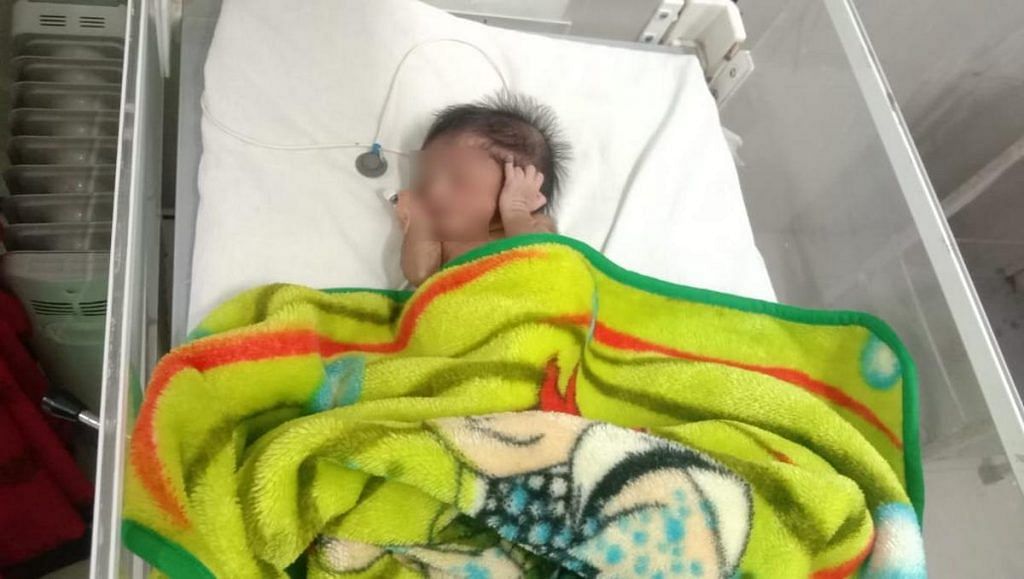
When asked about these allegations, the distict hospital’s chief superintendent, Dr Deepak Seth, said that the baby was being treated like any other infant at the hospital.
“The child is being treated as per the guidelines of the government. He was born premature, so he is in intensive care. The clothes, milk and other items are being spent from the government funds only,” Seth said.
Where the baby will go after his health improves is still not known.
The survivor and her family don’t want to keep him because of the social ostracism they are already facing.
“People run away from us. If we keep that child with us, then who will marry our girls?” the survivor’s mother said, bursting into tears.
Hospital staff, speaking under condition of anonymity, said they hope someone will volunteer to adopt him soon. Seth said that the baby will likely be handed over to the NGO Childline after treatment.
Pictures from the hospital show the infant in his crib, his tiny hands close to his face, wrapped in a colourful blanket. In some, hospital staff are seen tending to him. He doesn’t have a name yet.
Daily desperation, and a ‘kidnapping’ twist
The survivor and her family are struggling to put back the pieces of their lives in the village, where they live under a pall of fear and social stigma.
“People taunt us in the village. They laugh at us. People of four villages know about the incident that happened to us,” the survivor’s mother said.
The family are also apprehensive that accused Shivmurat Pasi might seek retribution against them, especially if he is released on bail. It is this that, police say, that led to a bizarre case of “fabricated” kidnapping.
On 3 January, the survivor’s father was due to appear in the Allahabad High Court to present his side during a bail hearing for Pasi. The same day, the survivor’s mother got a call that her husband had been “kidnapped” by Pasi’s relatives on his way to court. She then notified the police. However, the kidnapping was not a kidnapping at all, police said.
“We had received a complaint that the victim’s father went missing,” said inspector Alok Kumar of Charwa police station. “We formed three teams and searched for him, and finally found him at Charbagh in Lucknow. He told us that he was tricked by some people because of which he fabricated the story of his abduction.”
When asked about this, the survivor’s father admitted that he had acted on advice from others that he should fake his own abduction and blame it on Pasi so that the latter’s chances of getting bail would go down.
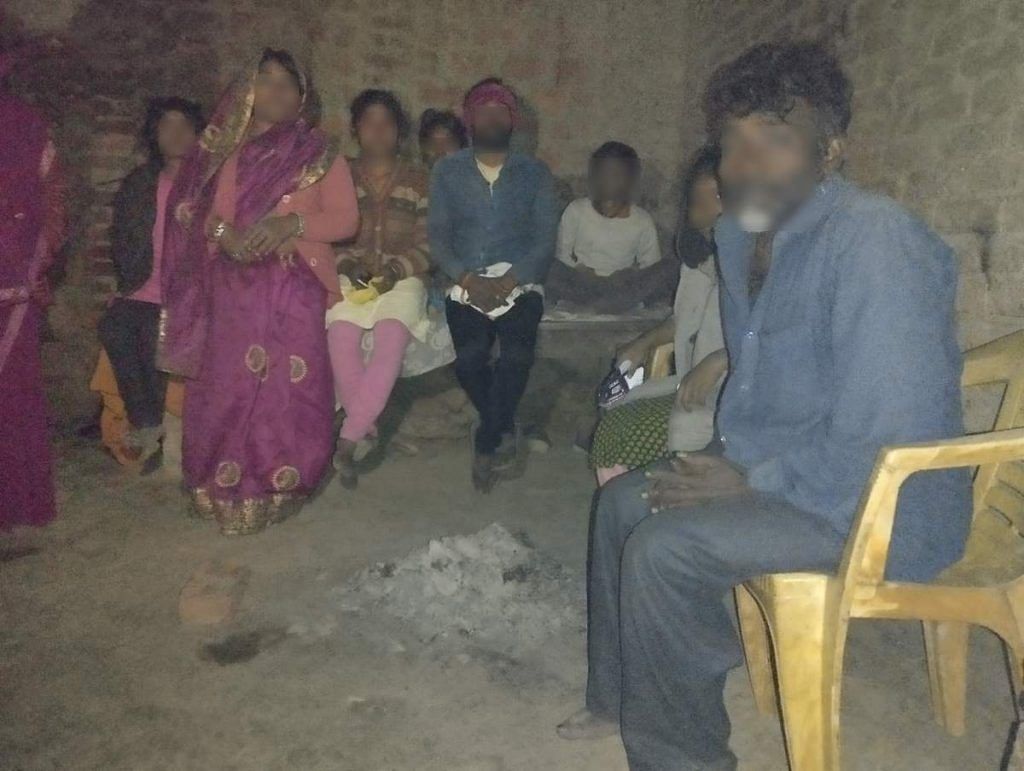
The family wants to sell their home and move from the village, but they barely have enough money to scrape together two square meals each day.
In 2015, UP Chief Minister Yogi Adityanath had started a scheme, called Rani Laxmi Bai Mahila Evam Bal Samman Kosh, to give financial assistance of up to Rs 10 lakh to women and girl victims of violence.
However, the 13-year-old and her family said that they have not received any kind of compensation from the government.
Uttar Pradesh, incidentally, has consistently recorded one of the highest incidences of sexual violence against minor girls in India, according to statistics from the National Crime Records Bureau (NCRB).
In 2021, over 33,000 girl children were reported to have been sexually assaulted across India, with the highest number of cases coming from Madhya Pradesh (3,522), Maharashtra (3,480), Tamil Nadu (3,435), Uttar Pradesh (2,749), and Karnataka (2,093). In 2020, UP had topped the list with 6,898 POCSO cases, of which 3,881 pertained to sexual assault or aggravated sexual assault of girls.
‘Want to go back to school’
Ever since Shivmurat Pasi’s arrest, fear has spread in the entire area, according to villagers. If a father of four daughters like Shivmurat Pasi could commit such a crime, who could be trusted, some asked.
“We never thought that something like this would happen. We never thought that Shivmurat would do such a thing. Today, due to this incident in the village, there is fear about the safety of women. We are now afraid to send our girls and women out of the house and have become more cautious about their safety,” said Kamalpur resident Shiv Kumar.
The accused is currently lodged in Manjhanpur jail and his family has fled to Delhi after locking the house, villagers claimed.
The survivor, though, does not want to remain under lock and key. She has been out of school ever since the rape case was lodged, but she plans to resume classes after the winter vacations.
She does not talk about her child but she is very clear about her future.
“I want to become a police inspector when I grow up and put people like Shivmurat in jail. I also want to teach my younger siblings,” she said.
Her father added that whenever he gets despondent, she buoys him: “She’s the one who consoles me and says we will definitely get justice.”
(Edited by Asavari Singh)
Also read: A rape forgotten—50 years ago, Mathura was denied justice. Then society betrayed her


